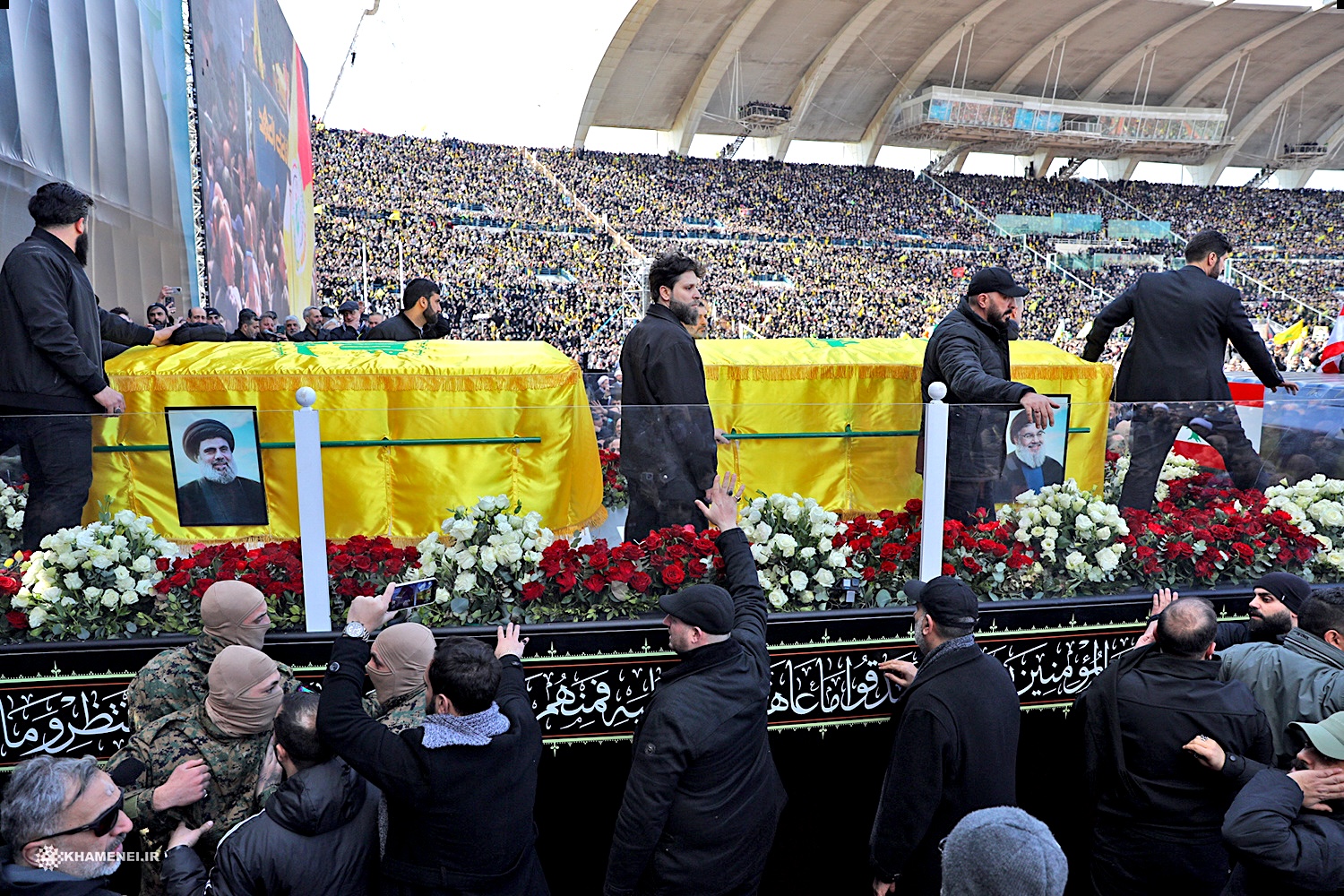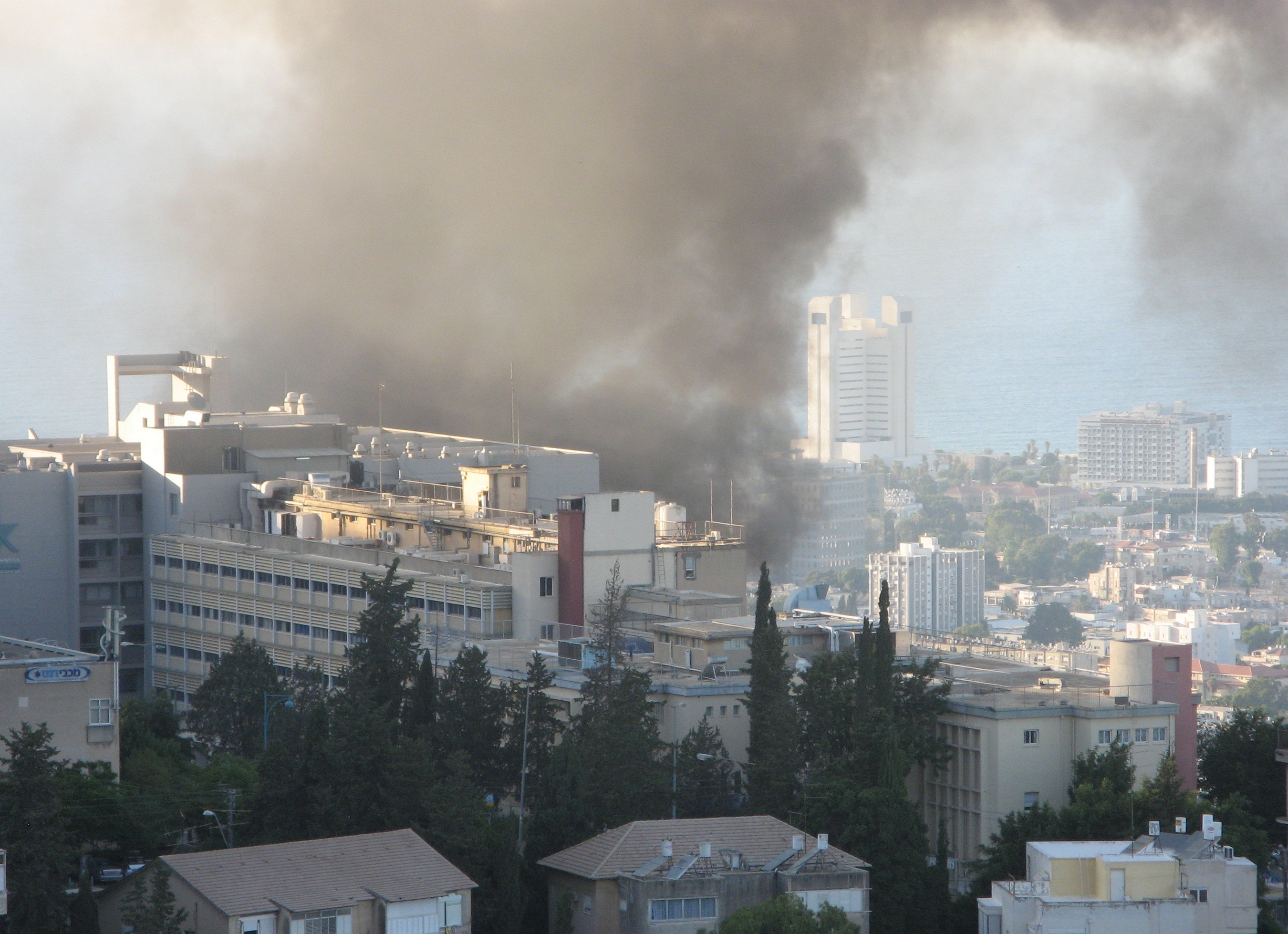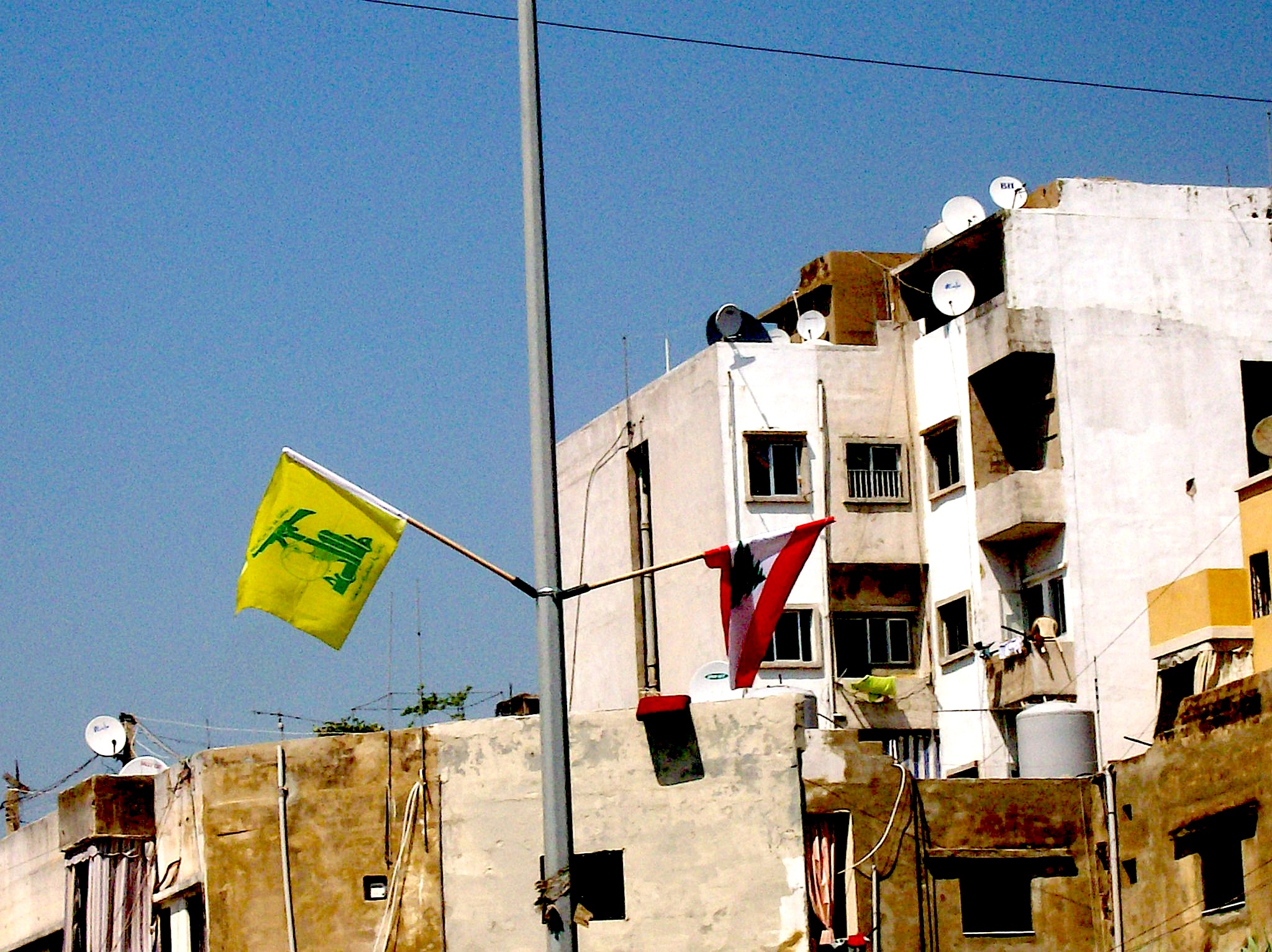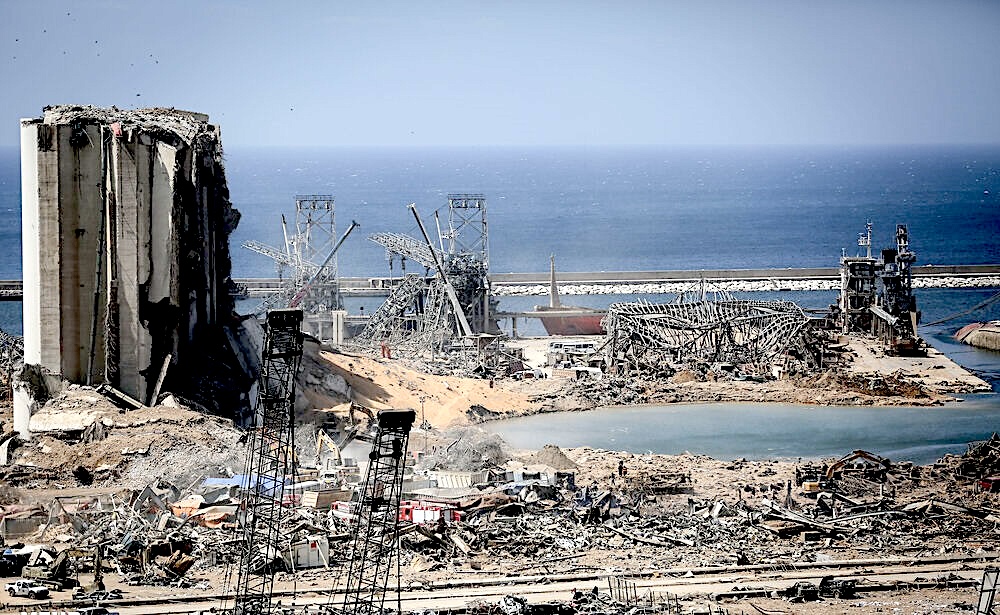The organization dubbed its 2006 triumph over Israel a “divine victory.” That may have been a mistake. Its experience in this war offers lessons.

Coffins of senior Hezbollah official Hashem Safieddine and Secretary-General Hassan Nasrallah during their funeral in Beirut on Feb. 23. (Khamenei.ir/ Wikimedia Commons/ CC BY 4.0)
By As`ad AbuKhalil
Special to Consortium News
 What is Hizbullah’s status today and why didn’t it perform as well on the battlefield against Israel this time as it did in 2006?
What is Hizbullah’s status today and why didn’t it perform as well on the battlefield against Israel this time as it did in 2006?
Answers to these questions are not easy to come by. Hizbullah has been uncharacteristically quiet about its military and political situation.
Its new secretary-general insists it is fine and is learning from its mistakes. He says investigations are underway into security breaches that led to a number of devastating results for the party.
Not much information has been shared with the public. Clearly security breaches have not been plugged because Israel continues to target its commanders on the ground, mostly as they move in cars or on motorcycles.
Former Hizbullah MP Nawwaf Musawi (one of the party’s smartest leaders who had slain leader Hasan Nasrallah’s confidence), lately caused a stir within the party and among its general supporters when he spoke candidly about the party’s mistakes.
He said that instead of talking about Israeli successes, he prefered to talk about the shortcomings that enabled Israel to strike the devastating blows that it d id against Hizbullah’s military and security wings.
The party has perpetrated a series of mistakes since its 2006 victory that has allowed Israel to enjoy a wide advantage over its formerly formidable adversary.
The Still Powerful Party
Hizbullah is nevertheless the largest and most powerful political party in Lebanon, if not in the Arab world. It is even larger than the Sudanese Communist Party at its late 1960s, early 1970s zenith. It can’t be compared to the Ba`th Party of Iraq under Saddam Hussein because membership in Iraq wasn’t as voluntary as in Lebanon).
Hizbullah has some 100,000 fighters, many of whom have been battle tested in Lebanon and Syria. One of its MPs, Muhammad Ra`ad, received more votes (preferential votes in the latest Lebanese electoral system) than entire political parties like the Phalanges.

Paula Yacoubian in 2020. (mtvlebanon/ YouTube /Wikimedia Commons/ CC BY 3.0)
Ra`d received more than 48,000 votes while better known MPs such as Paula Yacoubian received no more than 4,000 votes. Still, Yacoubian, not Ra`d, is chosen by Western media to speak for the Lebanese people.
With its partner Amal Movement, Hizbullah has been consistently receiving around 95 percent of the Lebanese Shiite vote. Its representation of Shiites hasn’t been challenged in years despite the avalanche of cash Western and Gulf governments throw at Hizbullah’s Shiite opponents.
Hubris
But why did Hizbullah suffer devastating blows since its Oct. 8, 2023 entry into the war against Israel in solidarity with Hamas?
It’s clear Hizbullah (like many big or small powers) suffered from an acute case of hubris. It became intoxicated with its vast powers and great military victories against the mightiest army of the Middle East.
Its performance in the July 2006 war was by far the greatest humiliation of the Israeli army since the October 1973 war ended to the advantage of Israel, not the Syrian and Egyptian armies.
Hizbullah dubbed its 2006 triumph “the divine victory” and that may have been a mistake.

Smoke over Haifa, Israel, after a rocket launched by Hezbollah hit the city; Aug. 12, 2006. (Tomer Gabel, CC BY-SA 2.0, Wikimedia Commons)
By accepting the notion of a godlike origin of its success, the party descended into a sense of complacency. It became too confident in its abilities. Its ill-advised intervention in the Syrian civil war on the side of Bashar Al-Asad added to its sense of invincibility.
Party commanders and members were convinced it was their military intervention, and not Russia’s, that was key to preserving Al-Asad in power until recently.
Infiltration
Actually Hizbullah’s Syrian intervention facilitated Israeli encroachment into its security apparatus. The Syrian terrain has been rife with Israeli agents and Syrian armed rebels cooperating with Israeli intelligence.
They provided each other detailed information about their mutual enemy. The Syrian regime army was also infiltrated by Israeli agents who reported on Hizbullah fighters and commanders.
It’s clear that Israel was able to compile a detailed profile of the party’s structure and hierarchy and obtain most of its fighters’ names. Funerals from the Syrian war held in public in Lebanese villages allowed agents to easily report on visitors to the burials.
Hizbullah fighters entered Syria in processions through known entry points amid evidence of deep Israeli penetration of Syria before war broke out in 2011. Imad Mughniyyah was assassinated in 2008 in Damascus. He was the overall supreme commander of all Hizbullah fighters, second only to Nasralllah.
Shouldn’t that have alerted the party that Syria was suffering an acute case of Israeli infiltration?
Corruption

Hezbollah and Lebanese flags in a Beirut neighborhood in September 2011. (Nicholas A. Heras/Flickr/CC BY-NC-SA 2.0)
Like the PLO, Hizbullah in recent years suffered from massive corruption. In the past, it was said that Hizbullah itself was not corrupt but that it was aligned with corrupt regimes (Syria) and with corrupt movements (like Amal).
But that changed after 2006. Iranian money for reconstruction was not transparently spent, and many Hizbullah officials over billed for their damaged or destroyed homes. When millions are being dispensed, corruption is the natural outcome with the absence of accountability and tight financial management.
Before 2006, Nasrallah prevented corruption, as did Mughniyyah. Things changed afterwards, especially when Nasrallah no longer ran the day-to-day affairs of the party. Prior to 2006, he even knew the salaries of people at Al-Manar TV (the official TV station of Hizbullah).
Corruption often leads to enemy infiltration, especially when people compromised financially can be blackmailed.
There were presumably cases like that. That was the norm within the PLO. To be sure, unlike the PLO, Hizbullah built a formidable fighting machine with its financial resources, while the money the PLO raised failed to produce an effective military force. PLO fighters retreated swiftly when Israel invaded Lebanon, first in 1978, and then in the massive invasion of 1982.
People in South Lebanon, the southern suburbs of Beirut and the Baalbek region (all strongholds of Hizbullah) went beyond whispering about manifestation of wealth and even extravagance among families of party leaders.
Hizbullah officials’ wives were seen traveling in large SUVs, escorted by fighters. Many Hizbullah officials and their children were living very well, certainly better than rank-and-file Shiites of South Lebanon. There were a few investigations of corruption within the party, but they never amounted to anything, and accused officials were restored to their posts.
And there are talks about “sexual improprieties” among some within the party and rumors of widespread “temporary marriage.” Like the PLO experience, the Israelis always manage to exploit sexual weaknesses for entrapment or blackmail.
Even if commanders avoided cell phones and electronic devices, wives had their phones on them. This was presumably exploited by Israeli intelligence to target commanders in the war.
The party brandished its power internally. For instance, a Hizbullah security official was quoted saying a judge would be “plucked” after his 2020 port explosion investigation didn’t follow Hizbullah and its allies’ wishes. Instead of insisting on a thorough investigation, Hizbullah joined Amal in protests against the judge.

Damage to the Beirut port following the explosion in 2020. (Mehr News Agency/ Wikimedia Commons/CC BY 4.0)
When Lebanese President Michel Awn’s term ended in 2022, Hizbullah refused to allow Parliament to elect a successor and insisted on its handpicked candidate, Sulayman Franjiyyah. Awn was a close ally of Hizbullah, but the party’s refusal to consider an alternative demonstrated its arrogance of power.
Exploding Phones
Furthermore, the party clearly did not train its cadres on electronic intelligence and ways to avoid the enemy’s penetration and surveillance.
Hamas leaders in Gaza were university graduates who learned about computers and technology in Israeli prisons and in classrooms. Hizbullah leaders were not as educated and lacked technological skills.
In the early months of the war, when Israel was managing to kill tens of fighters daily, Nasrallah had to plead on TV for fighters to avoid carrying smart phones. Osama Bin Laden, in comparison, stopped using all technological devices as early as 1998. Bin Laden was not spotted by electronic intelligence but by tracking one of his messengers.
Lost Allies
Finally, Hizbullah had a wide network of political allies (from all sects) which helped it greatly in 2006.
The recent war took place after Hizbullah lost its allies, including the chief Christian ally, Tayyar of Michel Awn. Hizbullah fighters had nowhere to hide or to blend into and their maneuverability was too narrow.
Hizbullah’s experience during this war is a lesson for armed groups, liberation movements and resistance organizations. Corruption is a window from which the enemy can enter, and military victories are great for inspiration and recruitment, but dangerous if they produce a sense of invincibility and hubris.
As`ad AbuKhalil is a Lebanese-American professor of political science at California State University, Stanislaus. He is the author of the Historical Dictionary of Lebanon (1998), Bin Laden, Islam and America’s New War on Terrorism (2002), The Battle for Saudi Arabia (2004) and ran the popular The Angry Arab blog. He tweets as @asadabukhalil
The views expressed are solely those of the author and may or may not reflect those of Consortium News.

hxxps://thecradle.co/articles/the-eyes-and-ears-that-decapitated-hezbollah
I think that you forget that not everyone loves Hizbullah. Many many lebanese despise them – even if they whisper it only. Some of us cheered Nasrallah’s death. Their rank arrogance and holding the government hostage with their demands did nothing to help them be more popular.
It is interesting to note what is not shown in the picture presented. 1) The frontline fighters who fought and fought well no matter what was happening in the leadership behind the front. 2) The current actions of the Lebanese people who are marching and with what amounts to civil disobedience trying to reclaim their villages and their homes all while carrying flags and pictures of support for Hezbollah.
It is fascinating how the modern left really just ignores the people. Since to me the words “left” and “people” are synonyms, this is very striking to me on many occasions as I watch the modern left either ignore or attack ordinary people.
I grew up in a Left that could produce a People’s History of the United States. The modern left will never write a People’s History of anything. The modern left does not support the people, and most of the time has to be reminded that those people even exist.
The gangster/gang-war strategy of decapitation attacks is of course really stupid and doomed to fail against a popular movement. And especially a movement who’s society believes in martyrdom. The gangsters think in these tactics of “rubbing out” the rival, of course. This is how things are done in gangland. The goal is to get the other authoritarian leader of the other gang to back down. If you can’t intimidate them, you try to eliminate the rival gangleader.
In gangland, the gangsters can usually count on the underlings to the rival leader to be greedy and corrupt and out for themselves. The death of a leader can spark a civil-war for succession. Or get a new leader that will make a deal in the art of the deal.
But, this does not work with popular movements. This confuses the gangleaders, because today in gangland there are no movements. Only various factions, ie, gangs, competing. In gangland there are no movements where the people believe in the cause and where the assassination of one leader only leads to the next leader stepping forward from the mass of the movement to carry on.
Gangland counts as Great Victories a successful Hit on an opposing leader. But, when fighting a movement that believes in martydom, this might at best cause a bit of disruption during a re-organization behind new leaders. This appears to greatly confuse the inhabitants of gangland.
Its hard to get passed the opening. Hezbolllah did better on the battlefield this time. Israel tried to invade Lebanon, to create a security buffer 20 km deep, and hit a brick wall. This was full back up the middle for a loss of a yard. Ouch. There were villages on the border that were fought over, that Israel could never take. On the border. They took a few border villages, but got stopped dead in their tracks at others.
During a war, it helps to pay attention to names and find them on maps. Put pins in the maps like your greatgrandparents may have done during the World War. That helps you to see where the fighting is, and whether the front is moving. Do that in Ukraine, and one sees that the front is clearly moving. In Lebanon, the front was not moving. The last day the Israelis were still fighting in the same villages as the first day. They sure as heck were not moving up through Tyre and to the outskirts of Beirut. They never even saw the Litani River, their announced goal.
Meanwhile, Hezbollah was stepping up attacks on Tel Aviv, until it was the Israelis who needed the cease-fire at the end. In a war, both sides lie about such things, but from the peanut gallery it certainly seemed like it was Israel who wanted, was asking for and needed the cease-fire.
Where Hezbollah has suffered some defeats is in the cease-fire. Israel has had more success and taken more territory from the cease-fire agreement than they did during the fighting. The cease-fire has clearly been favorable to Israel. But the fighting just as clearly was not.